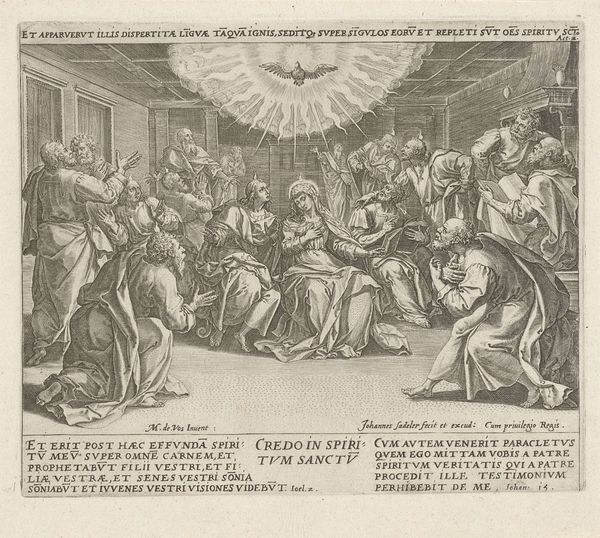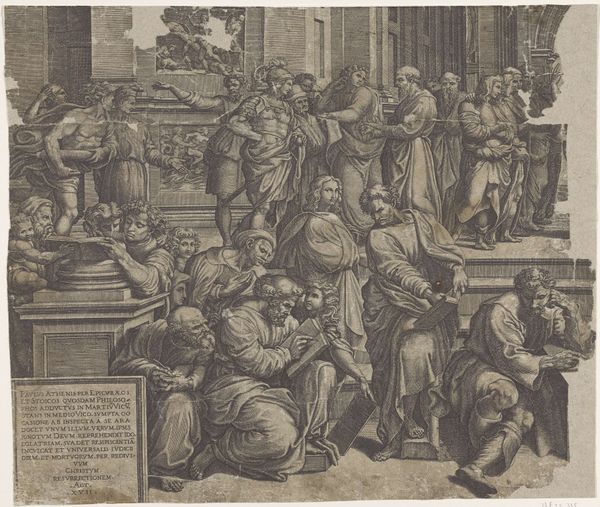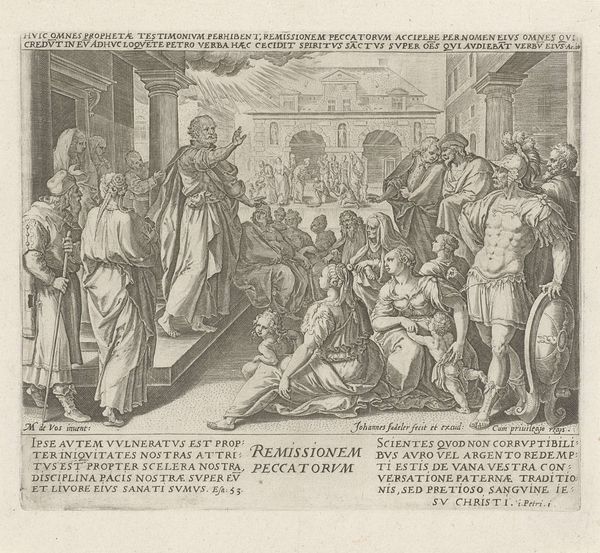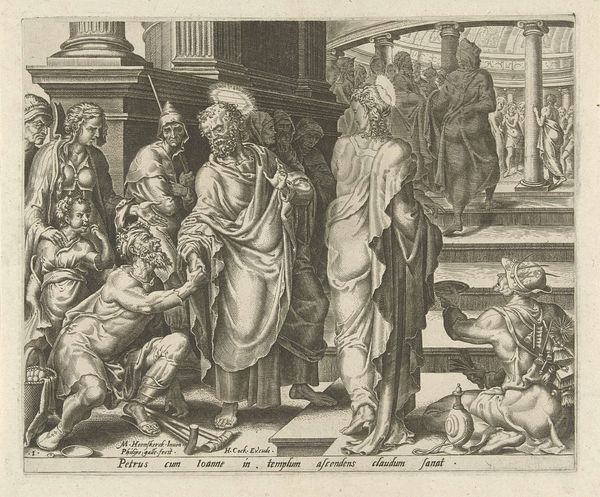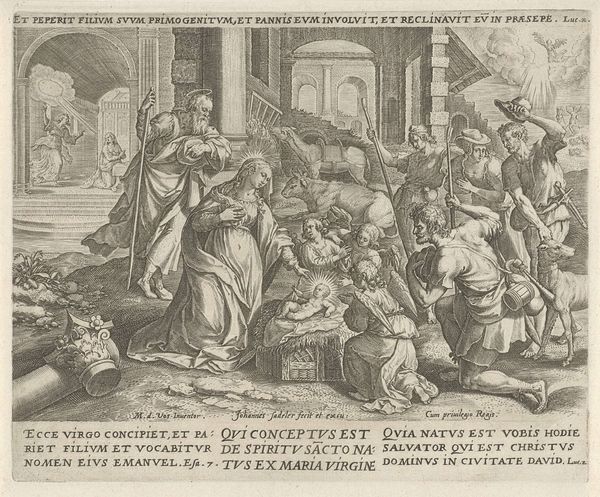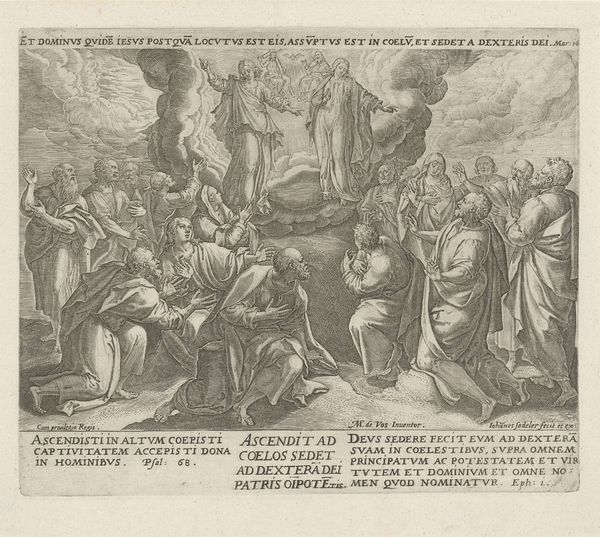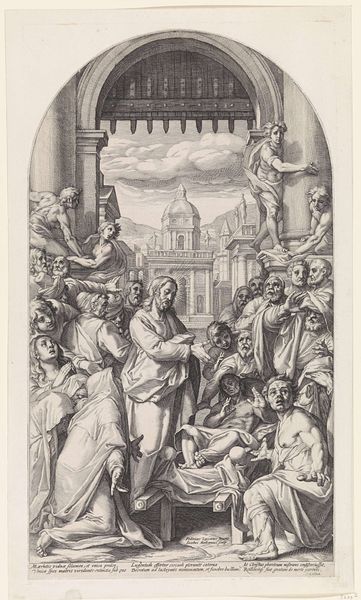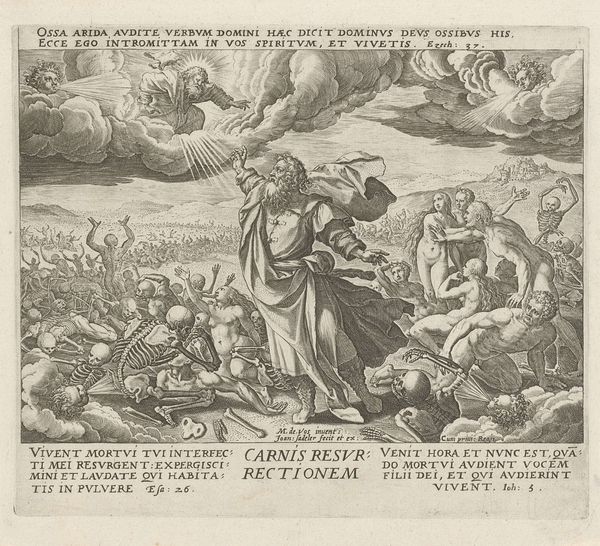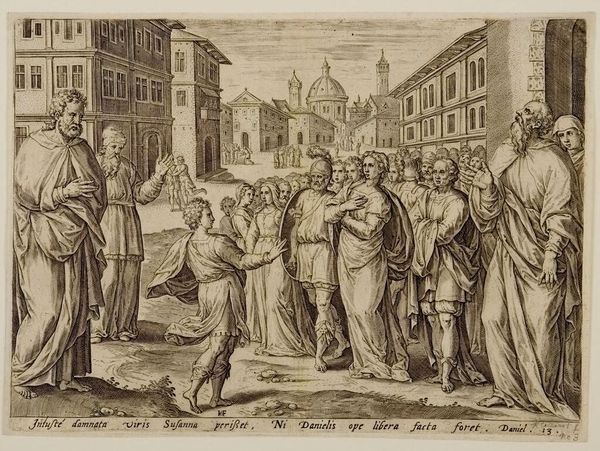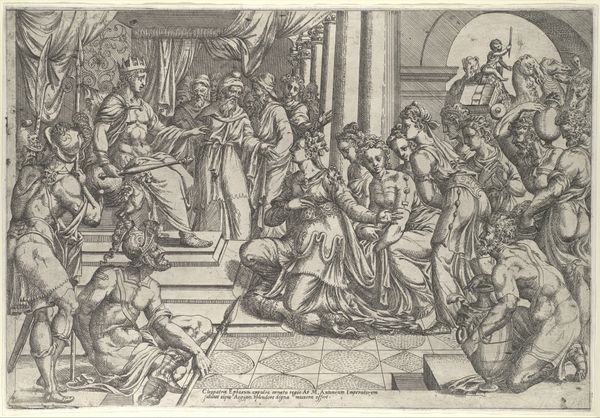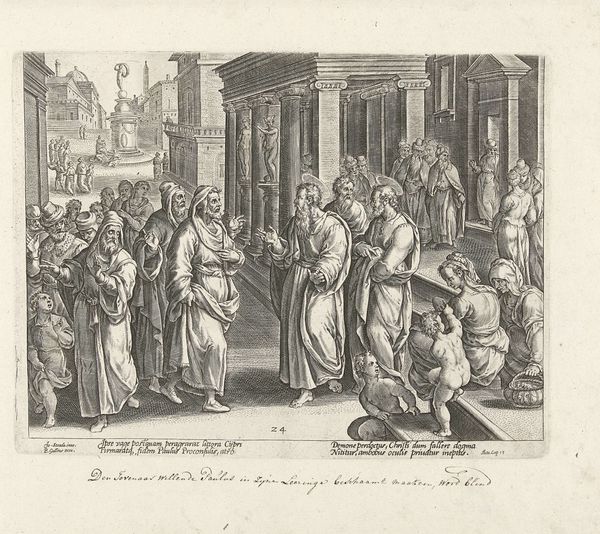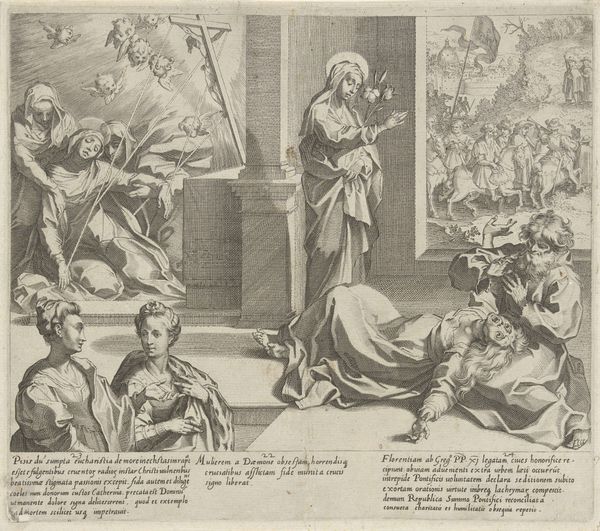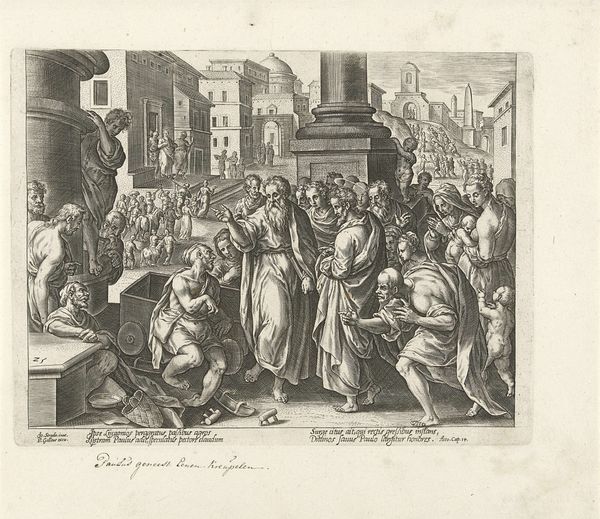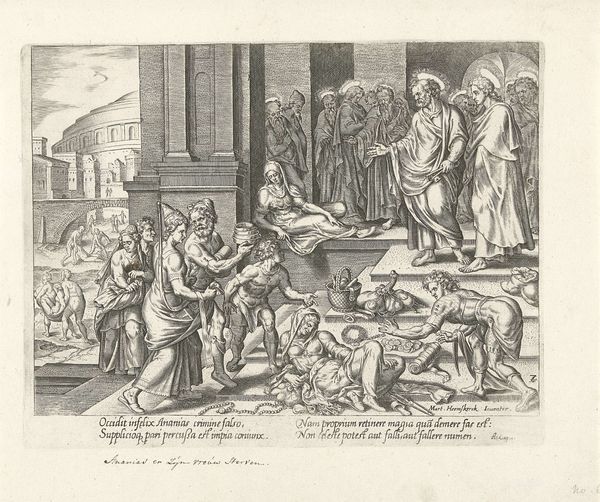
Handelingen der apostelen: 'de heilige katholieke Kerk, de gemeenschap van de heiligen' 1579
0:00
0:00
johannsadeleri
Rijksmuseum
print, engraving
#
narrative-art
# print
#
old engraving style
#
group-portraits
#
genre-painting
#
history-painting
#
engraving
Dimensions: height 205 mm, width 242 mm
Copyright: Rijks Museum: Open Domain
This engraving by Johann Sadeler I, made around 1600, illustrates the early Christian community. Wealthy converts surrender their possessions to the apostles, who distribute them to the needy. Notice the repetition of hands offering and receiving, a motif that evokes ancient Roman scenes of sacrifice and tribute. The act of giving mirrors the reciprocal relationship between humanity and the divine. This gesture is a common thread across cultures, manifesting in offerings to gods, alms to the poor, and gifts to rulers. The pile of goods at the center is reminiscent of a cornucopia, symbolizing abundance and divine favor. Yet, here, it's transformed into a symbol of communal sharing, reflecting the early Christians' attempt to create a society free from the anxieties of material want. The architectural backdrop—a Roman temple—and the classical column on the right, serve to root this new Christian narrative in the context of the old. Observe how the classical forms are reinterpreted, infused with new meaning, mirroring the way early Christianity adapted and transformed existing cultural symbols to articulate its own message of salvation through communal devotion.
Comments
No comments
Be the first to comment and join the conversation on the ultimate creative platform.
